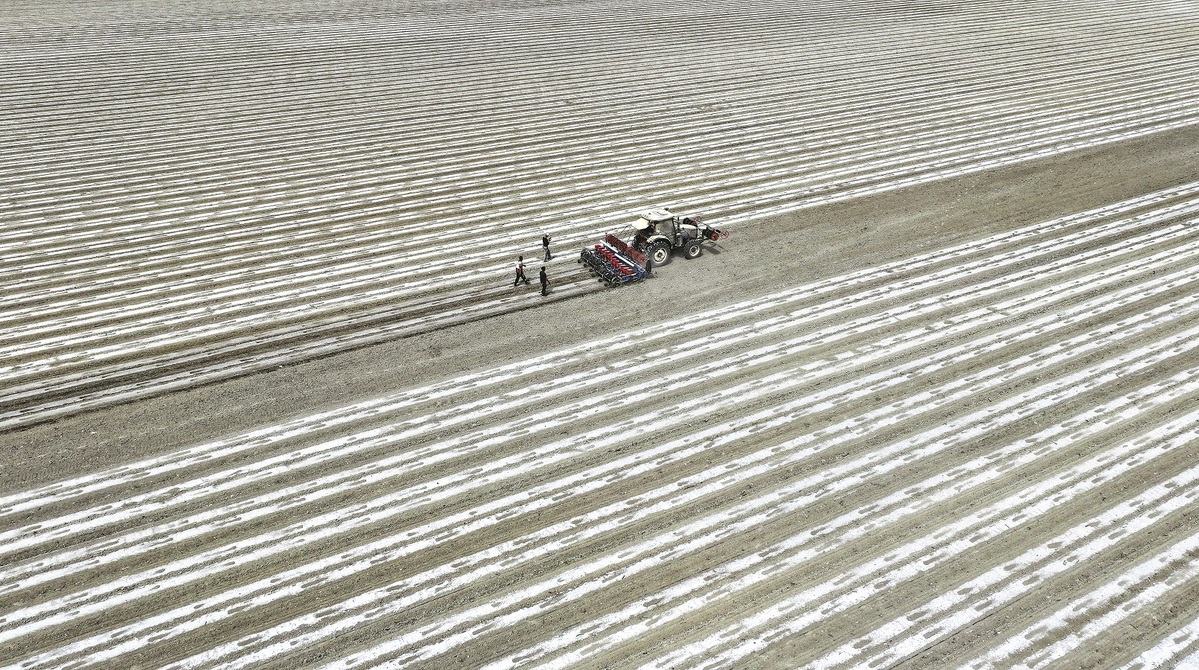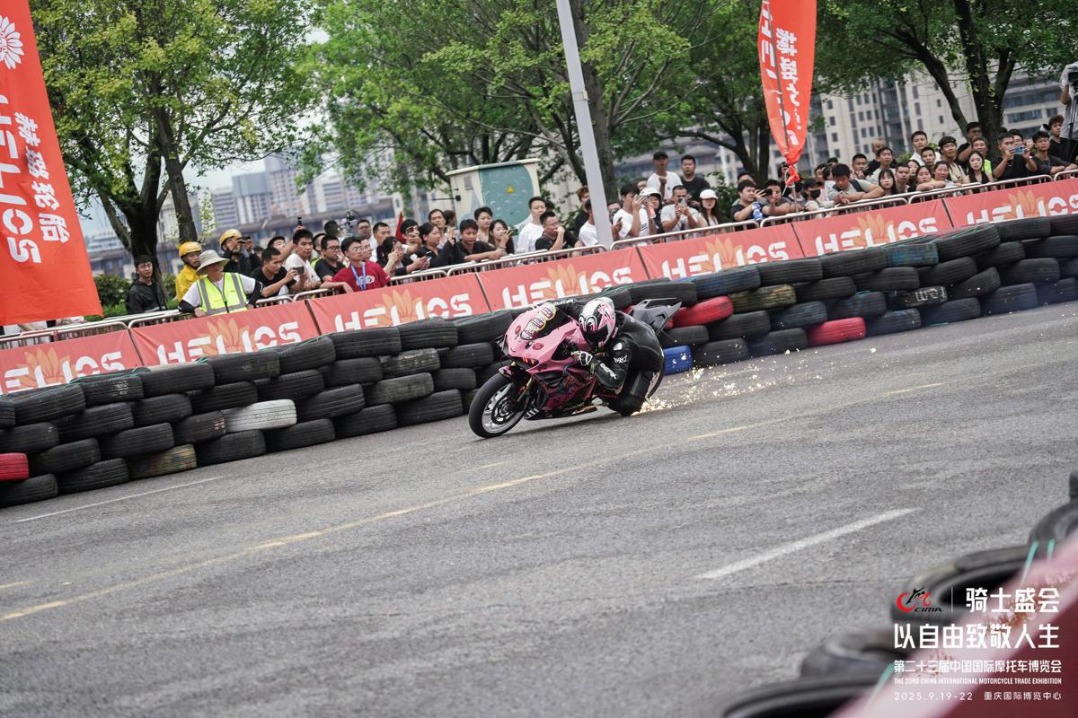Premium cotton crops, prices unravel false claims
Western accusations of 'forced labor' in Xinjiang disproved by high degree of mechanization, seed advances


Getting stronger
Xinjiang produced about 5.69 million metric tons of cotton in 2024, representing 92.3 percent of the country's total output and securing its leading position as China's largest cotton producer for the 32nd year in a row, according to a white paper released on Friday by the State Council Information Office.
The mechanization rate in plowing, planting and harvesting has reached 97 percent, said the document titled "CPC Guidelines for Governing Xinjiang in the New Era: Practice and Achievements".
Xinjiang's cotton-growing area is projected to increase slightly from the 2.45 million hectares recorded last year, according to the regional government, reflecting the strong commitment of local farmers to the crop.
But since 2021, some Western countries, especially the US, have been smearing Xinjiang's cotton industry with baseless claims on matters such as "forced labor". The US has even tried to crack down on businesses that source cotton products from Xinjiang by imposing a series of sanctions.
These sanctions, however, have not dampened farmers' enthusiasm for cotton, which remains profitable, Li said.
"They've targeted Xinjiang's cotton industry just because it has become too strong as its output accounts for over one-fifth of the world's total. And the funny thing is the cotton price reached a record high in 2021, when the industry was first targeted because of the global market's high demand for Xinjiang cotton.
"You can barely see people in the fields during cultivation and harvesting anymore. So where do the claims of 'forced labor' come from?" Li said.
Wang Tongren, director of the Agricultural Technology Promotion Center at the Bureau of Agriculture and Rural Affairs of Awat county, said the county will ensure Xinjiang's cotton production remains strong by securing the size of the planting area of 93,333 hectares, which is particularly important when it is being targeted by the US.
"What makes us more confident is that Xinjiang's cotton industry has achieved full self-sufficiency and control, from planting to processing through technological innovation and industrial chain upgrades, particularly breaking foreign monopolies in cotton seed varieties and key equipment such as cotton pickers," Wang said. "The industry is only getting stronger."
























